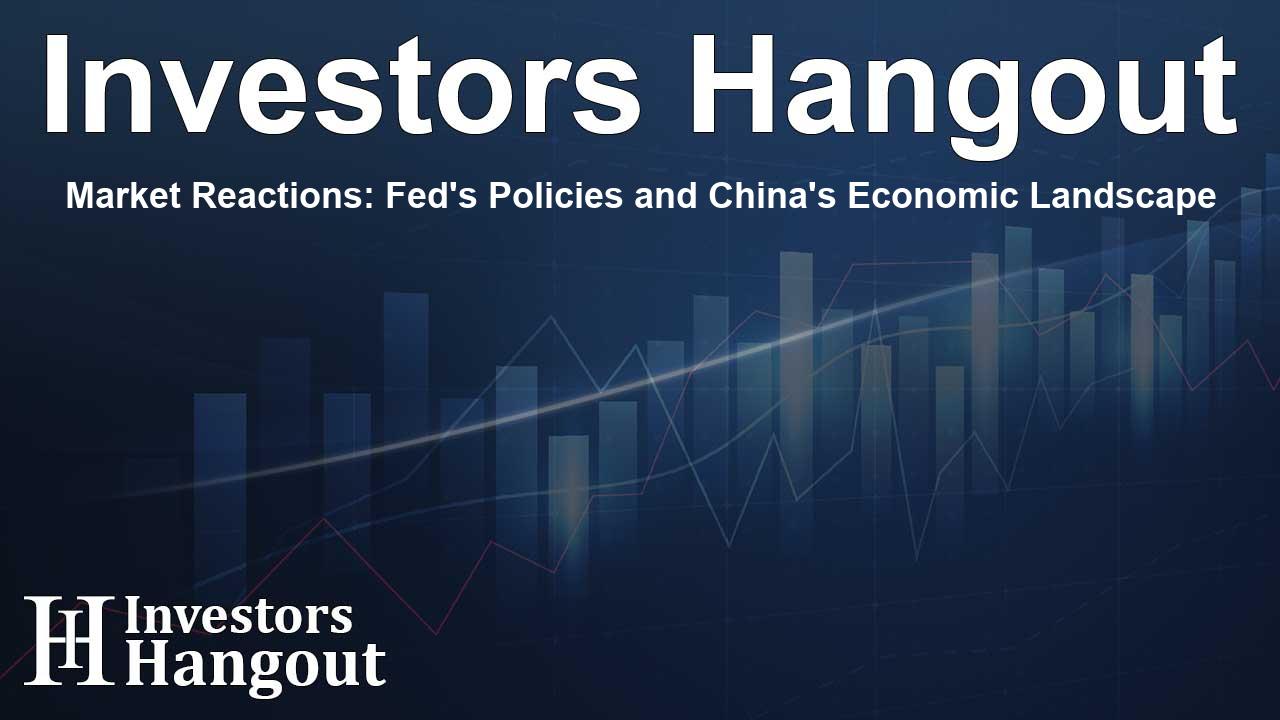Market Reactions: Fed's Policies and China's Economic Landscape

Market Reactions to Fed Policies and China's Economic Landscape
In the ever-evolving terrain of financial markets, investors are keenly observing the intricate dance of monetary policies and global economic indicators. Recently, Wall Street regained momentum as optimism regarding the U.S. economic outlook became palpable. This resurgence is largely attributed to the Federal Reserve's apparent confidence in the growth trajectory of the U.S. economy, suggesting a potential tapering of easing measures. However, as the markets gear up for the release of the FOMC's minutes from September, a hint of reticence pervades investor sentiment.
The Impact of China's Economic Statements
As trading commenced, sentiment surrounding China's economic guidance fluctuated significantly. Despite Beijing's assertions of being "fully confident" in meeting annual growth targets, the absence of robust fiscal measures left many investors feeling uninspired. The Chinese yuan experienced volatility, dropping initially and showing signs of recovery by the end of the trading day. The lack of concrete steps from Chinese policymakers disappointed those anticipating more decisive intervention to steer the economy onto a growth path.
Market Dynamics Post-Golden Week
Immediately following China's Golden Week holiday, shares surged to a two-year high, fueled by investor hope. Yet, that optimism dwindled when the state planner failed to deliver additional details that could reinforce the bullish outlook. Meanwhile, Hong Kong equities slid downwards as investors recalibrated their expectations regarding stimulus measures.
Challenges Faced by Investment Funds
Highlighting the ongoing challenges, London-based hedge fund Winton faced significant setbacks, reportedly losing over 8% of its investments tied to China since September 20. This downturn has effectively wiped out any gains accrued throughout the year, raising concerns about the sustainability of current investment strategies in the region.
Anticipation Ahead of Economic Indicators
As we look forward, all eyes will be on the forthcoming release of the Fed meeting minutes, expected to provide essential insight into the discussions surrounding labor market concerns. Recent employment data has rekindled optimism, with traders expressing a strong belief in a forthcoming interest rate cut. Market participants are currently assigning an 88% probability to a 25-basis point cut in the forthcoming FOMC meeting, while also factoring in a slight chance for rates to remain unchanged.
Geopolitical Risks and Market Sentiment
The backdrop of the financial markets is further complicated by the ongoing military tensions in the Middle East. As Israel intensifies its military operations, these geopolitical risks have not deterred U.S. markets, with the S&P 500 and Nasdaq enjoying notable rebounds in recent sessions. This suggests that while caution prevails, there remains a notable appetite for risk among investors.
Key Indicators and Events to Watch
Looking ahead, several crucial economic indicators and events are set to shape market directions. Investors are closely monitoring upcoming statistics, including:
- Taiwan CPI data for September
- Meetings of the Reserve Bank of India
- Meetings of the Reserve Bank of New Zealand
- Minutes from the recent Federal Open Market Committee meeting in September
Conclusion
In summary, as market participants digest the implications of Federal Reserve policies and Chinese economic measures, the landscape remains intricate and volatile. The balance between cautious optimism and geopolitical risks continues to shape investor strategies as they navigate the uncertainties in the financial climate.
Frequently Asked Questions
What prompted the recent market rebound on Wall Street?
The rebound was primarily due to investor confidence in the U.S. economic growth outlook, supported by the Fed's anticipated policy adjustments.
How did China's economic statements impact markets?
While initially boosting optimism, the lack of concrete fiscal measures from China led to a decline in market sentiment after the Golden Week.
What are traders expecting from the next FOMC meeting?
Traders are anticipating a 25 basis-point interest rate cut at the upcoming FOMC meeting, with strong confidence backing this expectation.
What are the current challenges faced by hedge funds?
Investment funds like Winton have faced significant challenges, experiencing losses that have erased gains due to market fluctuations, particularly in relation to China.
What should investors keep an eye on in the coming weeks?
Key economic indicators, including CPI data and upcoming central bank meetings, will be critical for navigating market trends and expectations.
About The Author
Contact Henry Turner privately here. Or send an email with ATTN: Henry Turner as the subject to contact@investorshangout.com.
About Investors Hangout
Investors Hangout is a leading online stock forum for financial discussion and learning, offering a wide range of free tools and resources. It draws in traders of all levels, who exchange market knowledge, investigate trading tactics, and keep an eye on industry developments in real time. Featuring financial articles, stock message boards, quotes, charts, company profiles, and live news updates. Through cooperative learning and a wealth of informational resources, it helps users from novices creating their first portfolios to experts honing their techniques. Join Investors Hangout today: https://investorshangout.com/
The content of this article is based on factual, publicly available information and does not represent legal, financial, or investment advice. Investors Hangout does not offer financial advice, and the author is not a licensed financial advisor. Consult a qualified advisor before making any financial or investment decisions based on this article. This article should not be considered advice to purchase, sell, or hold any securities or other investments. If any of the material provided here is inaccurate, please contact us for corrections.
